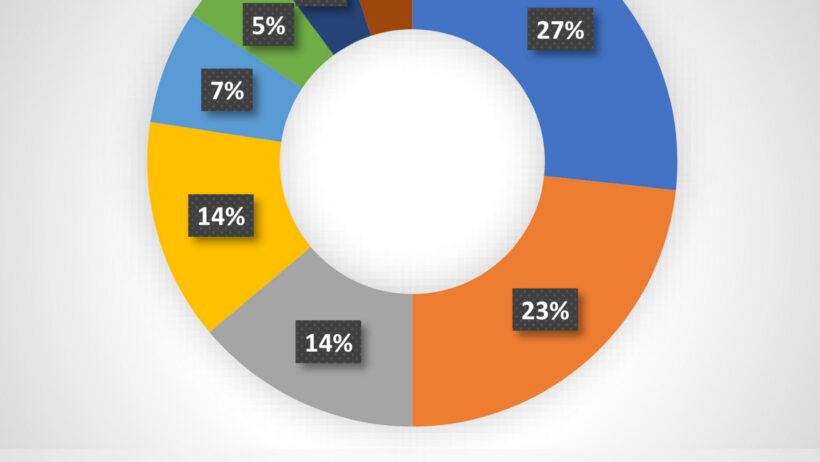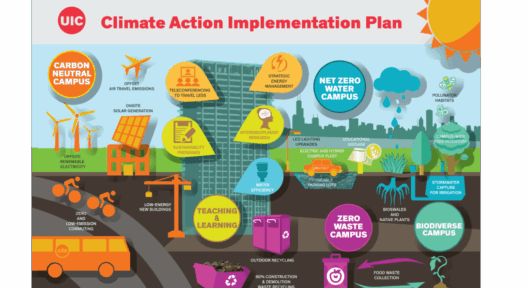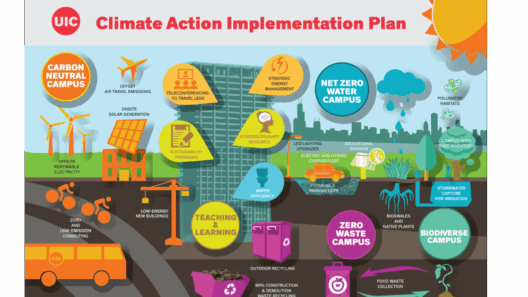Climate change is an existential dilemma that has captured global attention. Much has been made of the narrative that nations such as China and India are the principal culprits behind escalating greenhouse gas emissions. While it is undeniable that these countries have significant footprints, pointing fingers at them distracts from a more pressing realization: the biggest contributor to climate change is, in fact, us—our behaviors, consumption patterns, and systemic inefficiencies.
The developed world—the United States, Europe, and other affluent nations—has historically been responsible for a substantial portion of global emissions. This fact tends to be overshadowed by the burgeoning industrial activities in developing nations. The irony lies in the way wealthier countries exploit labor and resources in less affluent regions, while simultaneously blaming them for environmental degradation. The actions of a few affluent populations reverberate worldwide, creating a complex web of responsibility that is often ignored.
As industrialization progressed, the emissions from developed nations rose sharply. The combustion of fossil fuels, deforestation, and unsustainable agricultural practices have been central to this problem. In 2020, carbon dioxide emissions from fossil fuels and industrial processes represented the largest single contributor to greenhouse gas concentrations in the atmosphere. However, emissions are only one part of the equation; the underlying consumer culture must also be scrutinized. Our insatiable appetite for products, often manufactured in countries with lax environmental regulations, exacerbates the issue by promoting unsustainable practices.
The pervasive culture of overconsumption is profoundly problematic. Fast fashion, for instance, is emblematic of a system driven by consumerism. The fashion industry emits more greenhouse gases than international flights and maritime shipping combined. The quest for the latest trends fuels a cycle of production and waste that is environmentally catastrophic. Millions of garments are discarded each year, illustrating how consumer habits contribute to a broader environmental malaise.
Moreover, the problem extends beyond the individual. Corporations and governments have perpetuated a cycle of consumption by prioritizing economic growth over sustainability. The relentless pursuit of profits often leads companies to sidestep ethical considerations related to environmental impact. When profit becomes the singular focus, the well-being of the planet is relegated to an afterthought. This reality is evident in industries such as agriculture and energy. Industrial agriculture relies heavily on chemical fertilizers, which not only pollute waterways but also incrementally damage the soil’s ability to sequester carbon. Energy production often favors fossil fuel extraction, despite the availability of cleaner alternatives that can be harnessed.
Transportation further exacerbates the problem. Individuals often embrace personal vehicles as symbols of freedom and status, yet this practice is significantly detrimental to the environment. The transportation sector is one of the leading contributors to carbon emissions, primarily due to reliance on gasoline and diesel. Public transit options are underfunded or nonexistent in many regions, compelling individuals to choose less sustainable travel methods. Cycling and walking are often marginalized in urban planning, contributing to a reliance on motor vehicles that impacts air quality and climate change.
Stepping outside the realms of individual behaviors and corporate missteps, societal structures play a pivotal role in perpetuating environmental degradation. Policymaking often fails to account for the long-term consequences of decisions made in the name of progress. Political lobbying by fossil fuel companies continues to shape legislation favorably for their interests, hindering the transition to renewable energy sources. While there are initiatives aimed at promoting green technology, they are frequently undermined by a lack of cohesive strategies to implement such changes on a global scale.
It is vital to recognize that tackling climate change requires a fundamental shift in how society operates. Education is key; individuals must become aware of their ecological footprints and understand the broader ramifications of their daily choices. From energy consumption at home to the products purchased and their associated environmental implications, every action contributes to a collective impact.
Collective responsibility extends beyond mere awareness; it necessitates proactive engagement. Advocacy for policies that promote sustainability, voting for leaders committed to environmental stewardship, and supporting businesses that prioritize ecological integrity are actions that can drive substantial change. Individuals must leverage their consumer power to influence corporate behaviors, urging companies to adopt environmentally friendly practices and transparent supply chains.
International collaboration is another critical element in addressing climate change. Global issues require global solutions. Countries must work together, sharing technology and resources to combat the far-reaching effects of climate change. Initiatives like the Paris Agreement are essential frameworks, yet their success hinges on nations fulfilling their commitments. In an interconnected world, the ripple effects of one nation’s actions can lead to dire consequences for another.
In conclusion, while attributing blame for climate change can be an enticing narrative, it is essential to turn the lens inward. Ultimately, the crux of the matter lies in our consumer behaviors, corporate practices, and societal structures. To mitigate climate change effectively, we must embrace a holistic approach that recognizes our collective responsibility. With resolve, education, and collaboration, it is possible to chart a more sustainable path forward, ensuring a livable planet for future generations.







